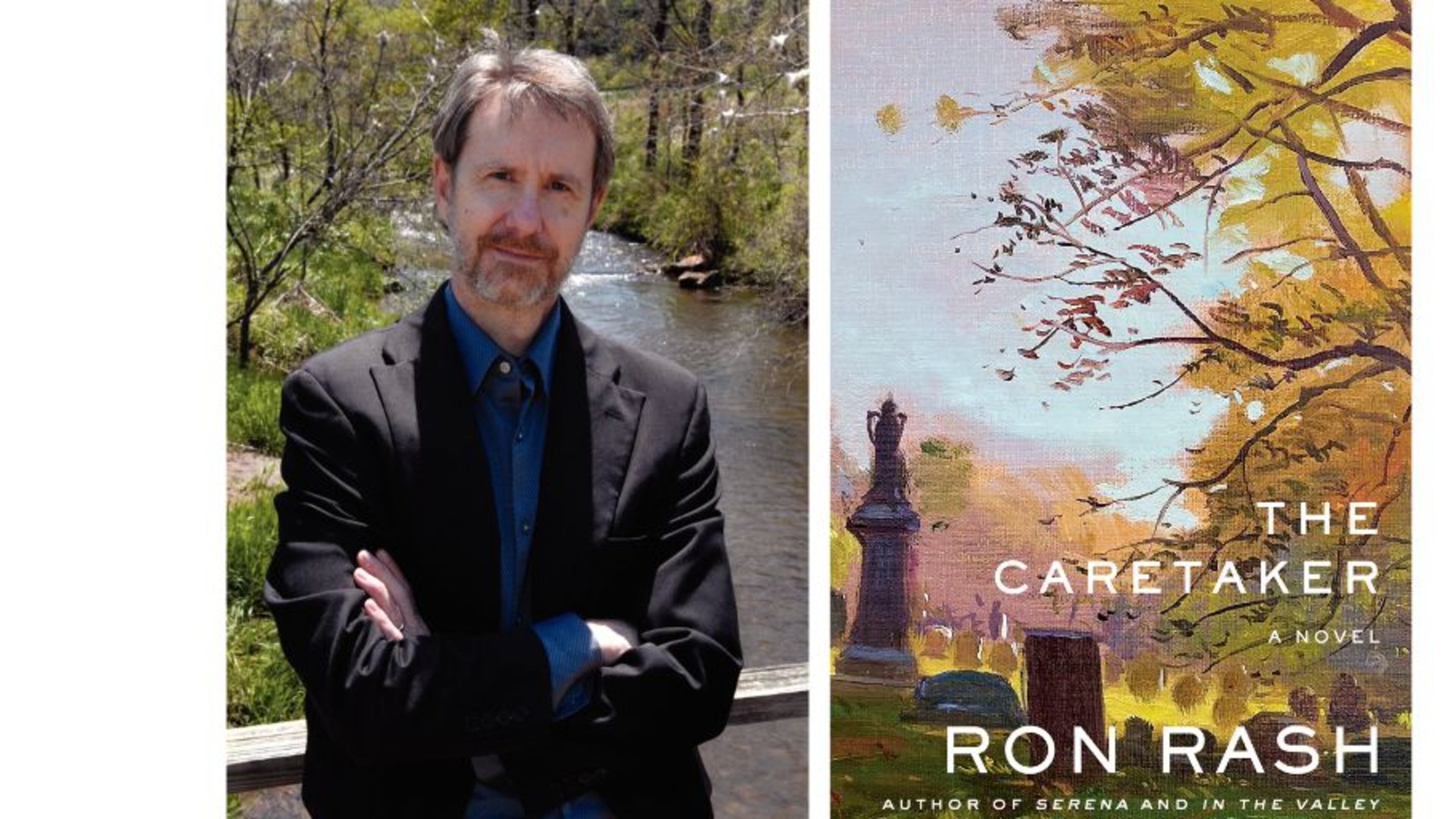Bookshelf: ‘The Caretaker’ an unpredictable tale of love, loss and honor

The town of Blowing Rock, North Carolina, is named for a rocky outcropping on a cliff in the Blue Ridge Mountains that’s perpetually thrashed by a strong wind.
Anyone who’s been there probably has heard the Legend of Blowing Rock, an old tale often told about two young lovers from warring indigenous tribes. Depending on who’s telling it, either a red light appeared in the sky, or the sky turned red. Either way, it signaled to the couple that their tribes were preparing to battle. Torn by his loyalties between his tribe and the maiden, the warrior leaped to his death from Blowing Rock. The maiden was so distraught, she prayed fervently for her lover’s return until, lo and behold, the wind blew him back into her arms.
Ron Rash’s new novel, “The Caretaker” (Doubleday, $28), is set in Blowing Rock in the mid-1950s, and although it makes no mention of the legend, its presence is felt in this unpredictable story of love, loss and honor that reads like a folktale in the making.
“The Caretaker” is about a love triangle of sorts. The primary couple is Jacob Hampton and his wife, the former Naomi Clarke. He comes from wealth and privilege; she comes from poverty. After they marry, Jacob’s class-conscious parents express their disapproval by disowning him. When he’s drafted to fight in the Korean War, they refuse to look after Naomi, who is pregnant.
Enter the third wheel. Jacob’s best friend since they were boys is Blackburn Gant. His face disfigured by a bout of polio when he was a child, Blackburn lives a monastic life in a cottage by the town cemetery, which he’s paid to oversee.
Governed by a strong moral compass, Blackburn takes his “duty to the dead” to heart, preferring to dig the graves himself rather than employ laborers who cuss and spit while they work. When Jacob enlists him to watch over Naomi while he’s in Korea, Blackburn not only accompanies her to doctor’s appointments and the movies, but he prepares her garden for spring planting. In the process of his caretaking duties, Blackburn falls in love.
We never know much about Naomi other than she is young, pretty and has little formal education, although she has an interest in improving herself. It’s not really clear why Jacob loves her so much, suggesting the relationship may partly be rooted in an act of rebellion against his controlling parents. Regardless, he doesn’t balk at choosing her over his family and his considerable inheritance
Even Blackburn seems more in love with the idea of Naomi than the flesh-and-blood woman. He’s like Frankie in Carson McCullers’ “The Member of the Wedding.” He’s in love with love, and he’s in love with this couple who embody love. When Jacob doesn’t live up to Blackburn’s standards for how a man in love should conduct himself, it leads to disappointment.
What might have happened had Jacob and Naomi been able to reunite after he was injured in Korea and sent home from the war is anybody’s guess. Determined to prevent that from happening, Jacob’s parents cook up a convoluted ruse to keep the couple apart. It’s a diabolical, unforgivable scheme, but Rash does a good job illustrating that it comes from a misguided place of love. They wrongly believe the pain their plan inflicts on others is worth the payoff.
Jacob and Blackburn are stoic mountain men who don’t show or express their emotions, but that doesn’t mean they don’t feel them deeply, and they are devastated by the Hamptons’ trickery. As clumsy as their efforts may be, the two men do provide each other a measure of comfort.
Ultimately, “The Caretaker” is about love in its many different iterations — romantic, brotherly, platonic, parental. But it’s also about how love is wielded. On one hand are the Hamptons, whose love is smothering and manipulative. On the other is Blackburn, whose love is pure and sacrificial. Although their emotions follow different trajectories, they come from the same source and arrive at the same conclusion: “The heart’s full knowing came only with loss.”
Suzanne Van Atten is a book critic and contributing editor to The Atlanta Journal-Constitution. You can contact her at Suzanne.vanatten@ajc.com.

